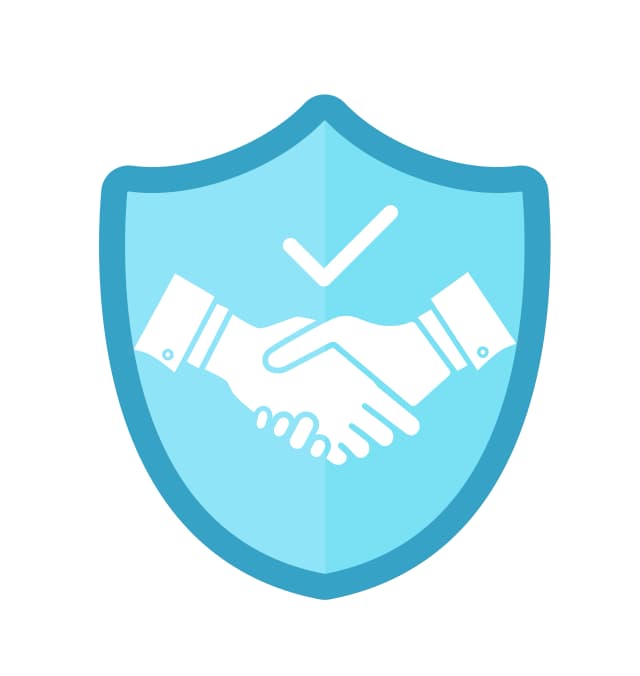Study in Lithuania
Where Education Meets Value
Become a part of Europe's hidden gem for quality, value, and vibrant student life. Studying in Lithuania allows you to enjoy world-recognized degrees, English-taught programs, and vibrant cultural environments—all without the cost of studying within Western Europe.
Book Free Counselling
Highlights
Lithuania is a rapidly growing destination for international studies, especially for students who want to study in Europe but without financial strain. Lithuania is a Schengen Area and an EU member state located in the Baltic region of Northern Europe. Its education is of high quality and EU-compliant. Lithuanian educational institutions follow the Bologna Process, meaning that degrees earned here are valid and recognized across Europe and many parts around the world. With a strong focus on research and innovation, particularly in the fields of IT, engineering, and health sciences, thousands of foreign students travel to Lithuania annually.
Why Study in Lithuania?

Affordable Education and Living Costs
Lithuania provides affordable, quality education with minimal tuition fees compared to majority of European countries. Living expenses are affordable, and international students can thus sustain themselves financially while pursuing their studies in the EU

English-Taught and Internationally Accepted Degrees
Numerous Lithuanian institutions provide English-taught courses in numerous fields like medicine, business, engineering, and computer science. Degrees follow the Bologna Process structure and are accepted within Europe and globally.

Safe and Student-Friendly Environment
Lithuania is top-rated when it comes to quality of life and safety. Vilnius and Kaunas are friendly to students with their lively student communities, good public transport, and amicable support services.

Work and Post-Study Opportunities
International students can work part-time while studying and remain in the country for up to 2 years after graduation to secure jobs. This enables practical experience and career development in Europe

Vibrant Culture and Student Life
Lithuania presents a wonderful combination of culture, history, and student-oriented activities. Students have an active campus life with several clubs, events, and fests, which makes the experience enriching academically and socially as well
Top Universities in Lithuania

Vilnius University
Vilnius
Established in 1579, it is the oldest and most renowned university in Lithuania. Known for academic excellence in humanities, sciences, and international collaborative research.

Kaunas University of Technology
Kaunas
One of the leading technical universities in the Baltic, KTU is well established for engineering, technology, and applied sciences

Vilnius Gediminas Technical University (VILNIUS TECH)
Vilnius
Highly renowned for its architecture, engineering, and IT programs, with close industry and research centre collaborations.

ISM University of Management and Economics
Vilnius
Leading private business school in Lithuania for international MBA, economics, and management programs

Vytautas Magnus University
Kaunas
Renowned for its liberal arts study and interdisciplinary programs, it offers a vast range of courses in social sciences, arts, and humanities.
Popular Courses in Lithuania

Medicine and Health Sciences

Engineering and Technology

Business and Management

Computer Science and IT

Social Sciences and International Relations

Architecture and Design

Medicine and Health Sciences
Lithuania is one of the best choices for MBBS and other studies due to its state-of-the-art medical facilities and internationally accredited degrees.
Top colleges: Lithuanian University of Health Sciences, Vilnius University
Know More Details
Engineering and Technology
Engineering courses in Lithuania are strongly research-based with close industry connections, particularly in IT and robotics.
Top colleges: Kaunas University of Technology, VILNIUS TECH
Know More Details
Business and Management
With English-taught programs and applied business modules, Lithuania is perfect for future entrepreneurs and business professionals
Top colleges: ISM University of Management and Economics, Vytautas Magnus University
Know More Details
Computer Science and IT
Lithuania is famous for its dynamic tech community, and it has top-notch programs in software engineering, cybersecurity, and A
Top colleges: Vilnius University, VILNIUS TECH
Know More Details
Social Sciences and International Relations
Political science, sociology, and European studies programs are increasingly popular with foreign students
Vytautas Magnus University, Vilnius University
Know More Details
Architecture and Design
Designed to promote sustainability and creativity, Lithuania's architecture programs attract design-inclined intellects.
Top colleges: VILNIUS TECH, Kaunas University of Technology
Know More DetailsEligibility and Admission Requirements
Admission Requirements
Completed secondary or higher education with satisfactory academic records
English language proficiency (IELTS: 5.5–6.5, TOEFL: 70–90 or equivalent)
Motivation letter and CV
Entrance exam or interview (for certain courses such as medicine or design)
Academic transcripts and a valid passport
Student Visa Requirements
(Fee Paying Student Visa - Subclass 500)
Official letter of admission from a Lithuanian university
Completed visa application form
Valid passport
Proof of adequate financial resources (~€400/month for living costs)
Health insurance
Fee for visa application (~€60–100)
Proof of accommodation in Lithuania
Living in Lithuania

€1,300 – €6,500/year based on the course
€300 – €700/month
€60–100
€200/year
Testimonials & Success Stories
Frequently Asked Questions
Is Lithuania a safe country for international students?
Yes, Lithuania is one of the safest countries in Europe.
Are degrees from Lithuanian universities recognized worldwide?
Yes, Lithuanian degrees adhere to the Bologna Process and are accepted throughout Europe and worldwide.
Can international students work while studying in Lithuania?
Yes, students can work a maximum of 20 hours a week during term and full-time during breaks.
What is the medium of instruction in Lithuanian universities?
Most programs are taught completely in English, particularly for international students.
Trust us to build you a bright future




